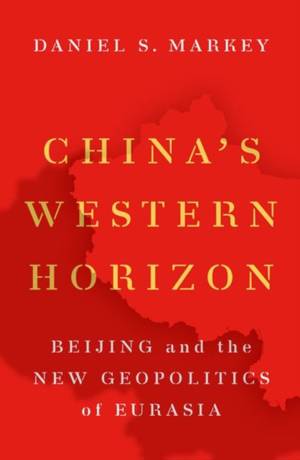
- Afhalen na 1 uur in een winkel met voorraad
- Gratis thuislevering in België vanaf € 30
- Ruim aanbod met 7 miljoen producten
- Afhalen na 1 uur in een winkel met voorraad
- Gratis thuislevering in België vanaf € 30
- Ruim aanbod met 7 miljoen producten
Zoeken
€ 40,45
+ 80 punten
Uitvoering
Omschrijving
A crucial assessment of how global and regional politics converge in the swath of Eurasia that includes South Asia, Central Asia, and the Middle East. Under the ambitious leadership of President Xi Jinping, China is transforming its wealth and economic power into tools of global political influence. But China's foreign policy initiatives, even Belt and Road, will be shaped and redefined as they confront the ground realities of local and regional politics outside China. In China's Western Horizon, Daniel S. Markey previews how China's efforts are likely to play out along its western horizon: across the swath of Eurasia that includes South Asia, Central Asia, and the Middle East. Drawing from extensive interviews, travels, and historical research, Markey describes how perceptions of China vary widely within states such as Pakistan, Kazakhstan, and Iran. On balance, Markey anticipates that China's deepening involvement will play to the advantage of regional strongmen and exacerbate the political tensions within and among Eurasian states. To make the most of America's limited influence along China's western horizon (and elsewhere),
he argues that US policymakers should pursue a selective and localized strategy to serve America's specific aims in Eurasia and to better compete with China over the long run.
he argues that US policymakers should pursue a selective and localized strategy to serve America's specific aims in Eurasia and to better compete with China over the long run.
Specificaties
Betrokkenen
- Auteur(s):
- Uitgeverij:
Inhoud
- Aantal bladzijden:
- 336
- Taal:
- Engels
Eigenschappen
- Productcode (EAN):
- 9780197582015
- Verschijningsdatum:
- 1/10/2021
- Uitvoering:
- Paperback
- Formaat:
- Trade paperback (VS)
- Afmetingen:
- 157 mm x 231 mm
- Gewicht:
- 498 g

Alleen bij Standaard Boekhandel
+ 80 punten op je klantenkaart van Standaard Boekhandel
Beoordelingen
We publiceren alleen reviews die voldoen aan de voorwaarden voor reviews. Bekijk onze voorwaarden voor reviews.











